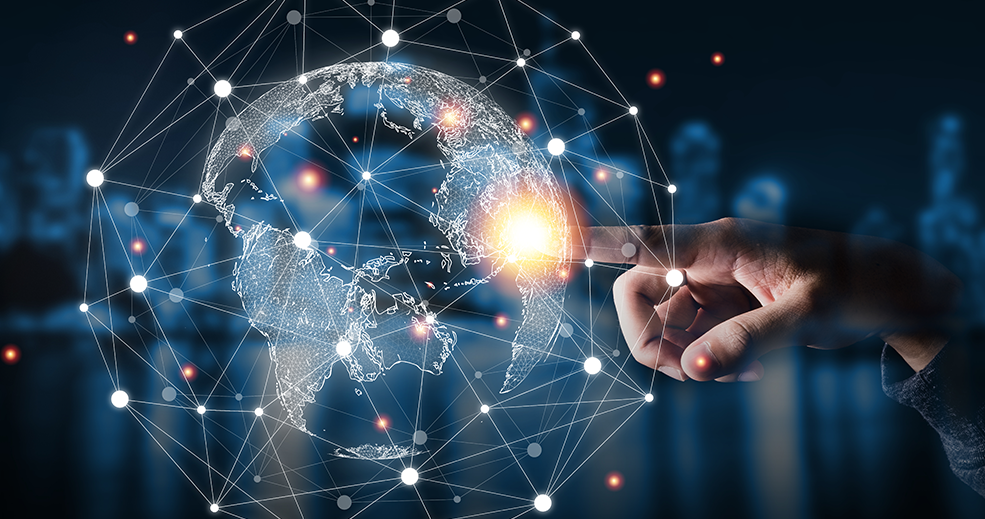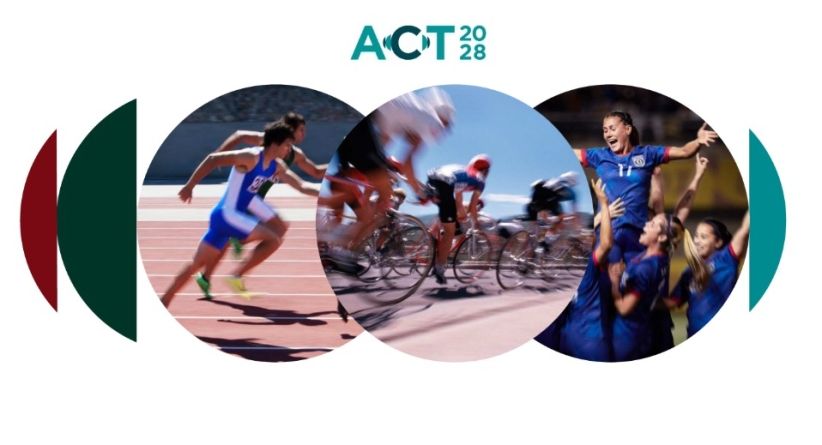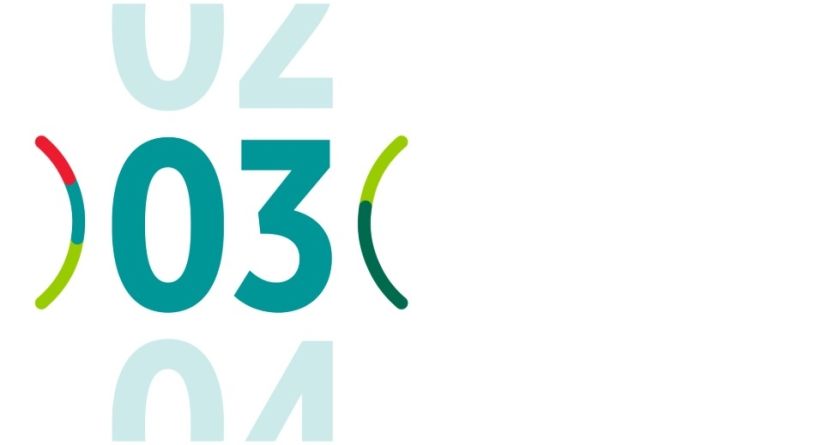
Various economic, political and military events of historic proportions are combining to quickly – and often unexpectedly – redraw the map of relative state power.
If this change sticks, it could be a major fork in the road as far as the global geopolitical scenario and the strategic business environment are concerned, ultimately leading to a new equilibrium. For the time being, though, everything is still unstable, and this transition could take a long time. Indeed, we find ourselves in a state of systemic disequilibrium, and we need to understand the ins and outs of it if we’re to avoid mistaking the nature of events.
The notion of systemic disequilibrium expresses a quite specific geopolitical situation where the great powers are no longer capable of stabilising international relations. Stabilisation does not mean peace; it means the absence of conflict between great powers such as would be liable to destabilise the system as a whole. To use a medical metaphor, geopolitical analysts call this a homeostatic equilibrium, homeostasis being a process whereby a living organism regulates itself. Historically, this kind of breakdown in equilibrium always signals a weakening of the hegemonic power – currently the United States. It’s important to note, however, that this weakening doesn’t meant the dominant power is weak – as can clearly be seen from the strength of the US dollar and America’s military might. But it does mean the dominant power is being challenged and weakened in relative terms and in certain specific arenas of power.
This type of challenge comes in a variety of forms, which can be seen in international developments today. The most serious challenge is being mounted by revisionist powers bent on overthrowing the world order, sometimes violently, with Russia leading the way. The softest form of challenge is expressed by countries that are now asserting their diplomatic independence, including from their allies, notably by not complying with sanctions against Russia – Turkey, India, the Gulf states, etc. These same countries are also helping weaken the hegemonic order by more actively calling for the reform of international institutions. War, failures of diplomacy, geopolitical fragmentation… it all points to a breakdown in the systemic equilibrium. This situation also partly explains the higher intensity of violence in the world (including inside countries), which is itself speeding up the shift in the geopolitical order by forcing peoples, groups and nations into them-and-us thinking. It all happens very quickly: when faced with war, you have to pick your camp.
Lastly, at times of systemic disequilibrium, certain events can suddenly knock the entire system off course, just as chaos theory shows for physical systems in a state of disequilibrium (for example boiling water, which subsequently turns into gas). These are exactly the types of events that are now happening, and that can move us towards a new power cycle. Such a cycle may be dominated by a hegemon; or it could usher in a cold war between two blocks; or it could give birth to a more multipolar world – but only if mechanisms guaranteeing regional security are established… and recognised by all. At this stage, we don’t know which of these scenarios will prevail, but all the signals pointing towards one or other hypothesis must be identified as they arise. Finally, note that we’re setting aside scenarios involving the use of weapons of mass destruction, unfortunately not because such scenarios are unlikely but because – if I can put it this way – they fall outside the scope of our competence.
Power is beginning to be redistributed along five key axes.
- Russian domestic politics has reached a tipping point. It’s true that the country’s economy has not collapsed, thanks to energy prices, external surpluses and the fact that many of its trading partners have not applied sanctions. However, sanctions will bite harder as winter comes on and, above all, the partial mobilisation has brought domestic politics to breaking point: the social contract between the Russian population and the state, which was based on the maintenance of internal security in exchange for sacrificing political freedom, seems for the time being to have been broken. More than 250,000 men have left the country in the space of a few days. This is undeniably a historic event. Externally, Russia is also in difficulty: the country is increasingly diplomatically isolated and is losing its reputation, both because of the atrocities of the conflict but also, paradoxically, because Vladimir Putin’s image as the archetypal strongman, so appealing to a chunk of the world’s population, has been unacceptably weakened.
- While things could go any one of a number of ways in Russia, Putin’s Eurasian dream is already in tatters and the country is facing what might, in short, be described as a kind of second death of the USSR. This situation creates a risk of destabilisation all along the empire’s borders, whether in the Caucasus, Central Asia or even the Arctic. Every one of the region’s maritime areas has taken on strategic importance for neighbouring countries and is thus at risk of tensions. Central Asia is obviously a huge issue for China, since it affects its hinterland and energy supply and is of strategic importance for a power that is geopolitically constrained along its sea coasts. Xi Jinping thus reserved his first foreign trip since the start of the Covid crisis for the Shanghai Cooperation Organisation summit in Samarkand. And, while he met with Putin there, he also saw all the region’s presidents. Turkey, also present at the Samarkand summit, is the other power that is not going to let a post-Soviet space fragment without finding a way to turn the situation to its own advantage – and Turkey has more cultural assets in that space than China. China thus has good reason to fear an overflow of the conflict, as it has told the United Nations: the consequences of Russian decline could trigger a huge strategic domino effect. Some US think tanks have no hesitation in describing the war in Ukraine as the first battle for Eurasia, considered since the time of Mackinder – one of the fathers of geopolitics – as a key piece in the global geopolitical power game: “whoever rules Eurasia controls the world”…
- The third axis of power is economic in nature: China has been weakened. Faced with – among other things – slower growth because of its zero-Covid policy, a real estate bubble, consumer mistrust, high youth unemployment and a declining birth rate, China finds itself in unpredictable waters made more turbulent still by its technological uncoupling from the West. The immediate geopolitical consequence is clear: the speed with which China can catch up in the global power race with the US has slowed. For the time being, then, Beijing no longer has the economic means to match its hegemonic ambitions. Of course, this does nothing to eliminate either long-term strategic rivalry or short-term tensions. The fact remains, however, that what China needs right now is not tension but time. To geopolitical analysts, then, the economy is signalling a weakening of Chinese power...
- Does this mean the United States has “won”? Not really – US power has been distorted, as has been steadily happening over the past ten years: although monetarily and militarily stronger, the US is still very weak in terms of its social cohesion. This summer, President Biden became aware of a report by American historians pointing out that US society, riddled with signs of proto-fascism, is as fragmented now as it was on the eve of the Civil War. Externally, anti-Western rhetoric continues to run hot, as evidenced by United Nations votes.
----------------------------------------------------------------
Paradoxically, the war has strengthened the West’s alignment – particularly Europe’s alignment with the US – while also increasing the rest of the world’s non-alignment. The narrative of a new cold war will perhaps, in part, be a western narrative; this possibility must be borne in mind to avoid falling into the trap of geopolitical ethnocentrism. In addition, the scarcity of resources is forcing all countries, even the smallest, to rethink the security of their supplies, and thus their alliances. For many western countries, part of the answer lies in working towards “globalisation among friends”. However, the key thing less advanced countries have observed through the Covid crisis is the lack of solidarity between western nations. All these countries will undoubtedly cultivate maximum strategic ambiguity and local alliances, each in their own way and with the resources available to them.
---------------------------------------------------------------- - The fifth axis of power is, as a consequence, the reordering of the world along multipolar lines. The current big winners are the Gulf states, building up huge external and budget surpluses, pulling up even the region’s weakest countries. However, before we can't tell whether what we’re seeing is truly a shift of power, we’ll need to see what these countries are going to do with all this excess liquidity, and whether they can come together to implement an organised regional geopolitical strategy. Meanwhile, India, while not rich, is benefiting from its strategic situation as a pivot. Its high GDP growth rate will also attract investors in a low-growth world – including investors seeking new opportunities for part of their investments in China.
Time for choices
The war in Ukraine, Covid and the clash between the US and China are causing the balance of power to shift. At times like this, certain choices and certain strategies can have historic consequences. The Kremlin must choose whether to continue with its terrifying escalation to extremes or to forge a path towards peace. The United States also has a choice to make: it could be tempted – by hubris? – to press its advantage against both Russia and a weakened China so as to set the pace of a new hegemonic cycle under its control. China also faces a choice: in recent years, geopolitics and ideology seem to have gained the upper hand over the country’s usual economic pragmatism, at the expense of its development trajectory. Striking the right balance between the economy, geopolitics and ideology will be one of the key priorities for its 20th Congress.
Lastly, there are choices facing all the peoples of the world, many of whom are already weighed down by what Stefan Zweig called this sleepless world: “there is no such thing as indifference when reality comes knocking; no one stays safe on their rock, smiling as they watch the floodwaters rise. Whether knowingly or unknowingly, everyone is borne along by the current, without knowing where it will take them. No one can cut themselves off from others.”







